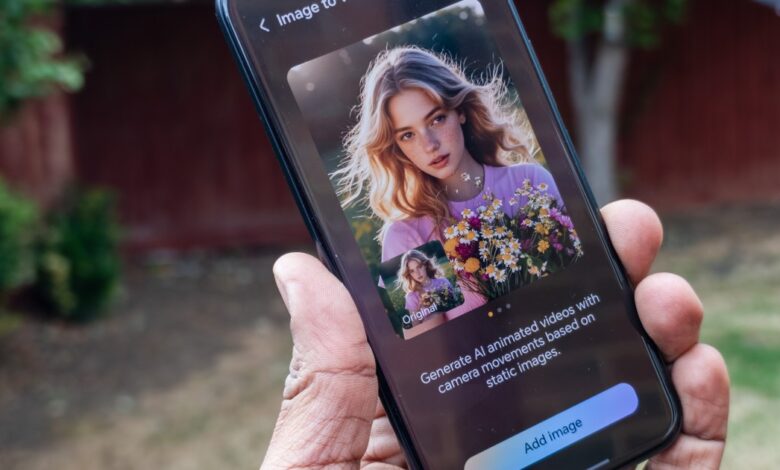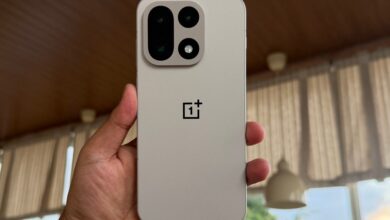Discover the Incredible Features of Google Veo on Mobile

Smartphones in 2025: The AI Revolution
as we look ahead to 2025, smartphones are evolving beyond just hardware specifications. The way manufacturers incorporate artificial intelligence (AI) is becoming crucial in shaping how consumers view their latest devices. A significant player in this conversion is Google, with its Gemini and Google Cloud technologies paving the way for a new age of AI integration in mobile phones.
Many Android brands are tapping into the capabilities offered by Google Cloud—features that also power Gemini—to create remarkable AI-driven functionalities. As an exmaple, Motorola has introduced a range of Moto AI features that utilize these cloud services. Similarly, OnePlus and Realme have developed their own unique offerings like the OnePlus AI Mind and Realme AI Planner, both leveraging Google’s advanced models.
the Honor 400: A Peek into Image to Video Technology
A standout example of innovative smartphone technology is found in the Honor 400 model, which boasts an intriguing feature called Image to video. This function harnesses Google Cloud's Veo 2 models to transform a single image into a brief five-second video clip. It’s interesting yet slightly eerie how this technology works.
We often hear that “a picture speaks a thousand words,” but videos can convey emotions and stories far more effectively. With Honor's new tool, you can convert any still image into dynamic video content—and the results are impressive.
The user interface could use some enhancements for smoother operation; however, generating videos remains straightforward. Simply head over to the Create tab within your Photos app and select “generate.” After choosing your desired photo, it will start processing right away.
The Snapdragon 8 Gen 3 chip powers the Honor 400; while it's an excellent processor from about a year and a half ago, it lacks some advanced neural processing units (NPUs) found in newer chips. Consequently, this feature requires internet access for optimal performance—it takes roughly one to two minutes per video generation and may occasionally encounter errors during processing. Despite these limitations—including a cap of ten images per day—the results can be both astonishingly good and somewhat unsettling.
A Surprising Level of Quality
I’ve experimented with creating ten different videos from various images—ranging from museum art pieces to everyday scenes—and I was blown away by what I saw! Each transformation felt almost magical as static images came alive through movement.
As an example:
- A still shot of cars caught amidst city traffic turned into an engaging scene where vehicles appeared animated against their backdrop—a captivating experience despite minor glitches here and there.
- Another example featured part of a white van visible through bus windows; remarkably enough, Honor’s software recognized this detail when crafting the final video output!
This feature opens up exciting possibilities for animating diverse subjects—from bustling streets filled with cars to serene flower gardens or candid moments between friends—all while providing fresh interpretations each time you generate something new!
Generative Storytelling Reimagined
This technology holds great promise not onyl for seasoned creators but also for those who might struggle with bringing ideas to life due to lack of resources or expertise. If you find yourself nodding along here—Honor's image-to-Video capability could be your ticket toward achieving what I call genuine generative storytelling!
Certainly there are potential downsides; using such tools irresponsibly could lead down dark paths—but let’s focus on positive applications! Imagine crafting heartfelt wedding tributes featuring loved ones who have passed on or museums sharing short clips showcasing key exhibits as enticing teasers.
This tech could even assist budget-conscious filmmakers looking for creative ways around limited footage availability when working on historical projects where original recordings may be subpar quality-wise!
(Yes—it outputs at only720P resolution—but sometimes that's all you need!) ....
Moast generative AI tools require text prompts alongside vague concepts—but not here! Just upload an image instead & let Honor do its magic! This refreshing approach makes me wish every top-tier smartphone would adopt similar features moving forward.
And don't forget! NoveByte might earn a little pocket change when you click on our links helping us keep this delightful journalism rollercoaster free for all! These links don’t sway our editorial judgment so you can trust us if you're feeling generous support us here!





